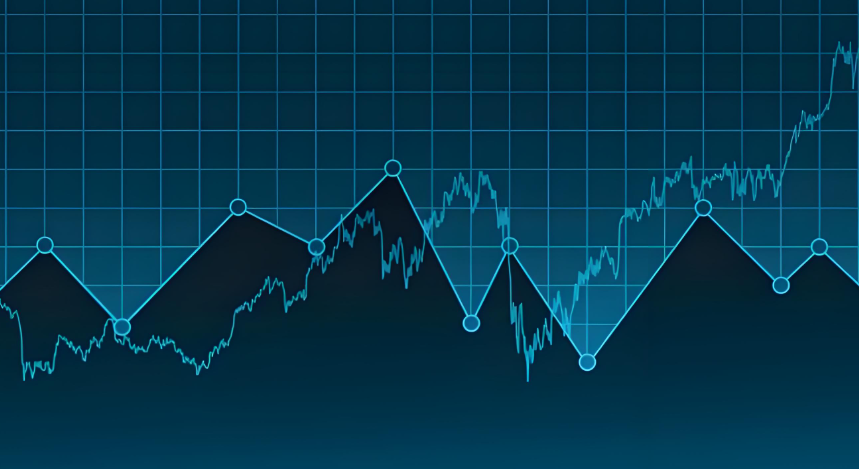Switzerland Nears Zero Interest Rates
Advertisements
As the world watches closely, the Swiss National Bank (SNB) appears poised to take a significant step this week towards adjusting its monetary policy. The end of a two-year era of positive interest rates in Switzerland seems imminent, with market predictions suggesting a likely reduction in the benchmark interest rate by 25 basis points, bringing it down to 0.75%. This move places the bank just three steps away from a zero interest rate scenario, a point that could be reached by 2025 if the SNB maintains a consistent pace of rate cuts every three months, barring any changes in direction by policymakers.
While a quarter-point cut is widely expected, there are whispers among certain analysts about a more aggressive strategy. Some suggest that a more significant reduction of 50 basis points might be on the table—a measure aimed not only at stimulating economic growth but also at curbing the speculative pressures on the Swiss franc. Traders seem to be echoing these sentiments, with some placing bets that favor this bolder approach.
Regardless of the actual decision, the SNB's options are rapidly dwindling. Switzerland's current interest rates are already among the lowest globally, placing the bank in a precarious position as it strives to manage inflation without pushing it too low. Currently, the inflation rate stands at 0.7%, dangerously flirting with the lower bounds of the SNB's target range.
The rising speculation surrounding the Swiss franc adds another layer of complexity. If the pressures on the currency don’t ease, officials at the SNB may find themselves considering potentially drastic measures such as currency interventions to expand their balance sheet. Such interventions could risk diplomatic friction with the United States and may necessitate a return to negative interest rates, an outcome that would have significant ramifications for the financial ecosystem.
Nadia Gharbi, an economist at Pictet, succinctly summarises the concern: “Weak economic growth in Europe raises the specter of trade wars. Implementing negative interest rates cannot be ruled out.”

This week also marks a milestone for Martin Schlegel, who is set to preside over his first interest rate decision as the new head of the SNB. He steps into this role amid heightened risks associated with speculation on the Swiss franc, which has been increasingly viewed as a safe haven during times of geopolitical unrest.
Over the past year, the Swiss franc has gained notable strength, partly fueled by political volatility in neighboring countries such as France and Germany. The resilience shown by the Swiss economy during these times has only added to the appeal of the franc as a stable investment. Last month, the euro was trading at its lowest against the Swiss franc in almost a decade. Similarly, the franc neared historical highs against the US dollar as of September, although it has weakened slightly since then.
Market sentiment regarding the franc remains divided. Major banks including JPMorgan, Citigroup, and Pictet Asset Management predict sustained demand for the currency amidst global trade tensions. In contrast, a widespread belief that the franc could weaken persists in other quarters.
The discussion surrounding the potential return to negative interest rates is particularly dynamic within economic circles. Economists are currently at odds regarding the necessity and timing of such measures. As the Swiss franc appreciates, import costs decrease, thereby exerting downward pressure on inflation and complicating the SNB's undertaking.
Gharbi again aligns with the financial market's perspective, forecasting that the SNB may reduce interest rates to zero at some point in 2025. This aligns with the cautious pessimism many economists feel about next year's Swiss economic growth trajectory.
Maxime Botteron, an economist with UBS, highlights that this shared outlook reflects a cautious stance towards anticipated growth, noting, “If growth slows, we can rapidly move to a zero interest rate environment.” Botteron further reveals that the general consensus among economists—including himself—is that after a further cut of 25 basis points to 0.5% in March of the following year, the SNB is likely to pause its rate cut agenda.
Traders in the foreign exchange market are becoming increasingly aware of the limited room for monetary easing available to the SNB compared to other central banks. This limitation may inadvertently contribute to upward pressure on the franc itself.
Additional factors undermining inflation also complicate the SNB’s challenges. The Swiss government has indicated that an adjustment to electricity prices is scheduled for January, with a planned average decrease of 10%. Furthermore, broad-based reductions in rents might emerge later in the year, adding further headwinds against inflation.
Schlegel has previously noted that the SNB’s framework allows for tolerating negative inflation for some time, but he also consistently emphasized the readiness of officials to lower rates below zero if deemed necessary, a state that Switzerland was entrenched in for nearly eight years prior to 2022.
Despite discussions surrounding negative rates, many economists still believe that the threshold for adopting such measures is considerably high, suggesting that policymakers are more likely to first engage in large-scale foreign exchange interventions.
Switzerland has often been criticized and labeled as a currency manipulator for such practices. Additionally, interventions in the currency market inevitably put pressure on the SNB from domestic political perspectives, particularly as these actions would amplify its already considerable balance sheet and could generate substantial losses.
As the SNB contemplates its strategy, Gero Jung, chief economist at Mirabaud, suggests that the risks associated with adverse impacts from interventions may be less than those associated with implementing negative rates. He recommends that stakeholders exercise caution regarding Schlegel's warnings about potential negative rate scenarios.
Leave a comment: